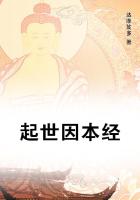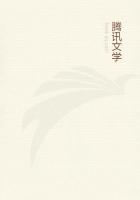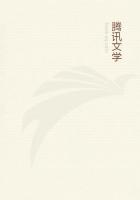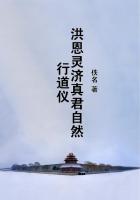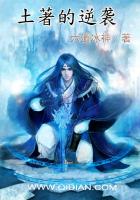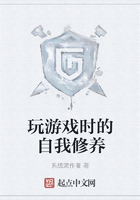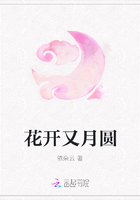GEORGE SAND
Napoleon in exile declared that were he again on the throne he should make a point of spending two hours a day in conversation with women, from whom there was much to be learnt. He had, no doubt, several types of women in mind, but it is more than probable that the banishment of Madame de Stael rose before him as one of the mistakes in his career.
It was not that he showed lack of judgment merely by the persecution of a rare talent, but by failing to see that the rare talent was pointing out truths very valuable to his own safety. This is what happened in France when George Sand--the greatest woman writer the world has known, or is ever likely to know--was attacked by the orthodox critics of her time. They feared her warnings; they detested her sincerity--a sincerity displayed as much in her life as in her works (the hypocrite's Paradise was precisely her idea of Hell); they resented bitterly an independence of spirit which in a man would have been in the highest degree distinguished, which remained, under every test, untamable. With a kind of /bonhomie/ which one can only compare with Fielding's, with a passion as great as Montaigne's for acknowledging the truths of experience, with an absence of self-consciousness truly amazing in the artistic temperament of either ***, she wrote exactly as she thought, saw and felt. Humour was not her strong point. She had an exultant joy in living, but laughter, whether genial or sardonic, is not in her work. Irony she seldom, if ever, employed; satire she never attempted. It was on the maternal, the sympathetic side that her femininity, and therefore her creative genius, was most strongly developed. She was masculine only in the deliberate libertinism of certain episodes in her own life. This was a characteristic--one on no account to be overlooked or denied or disguised, but it was not her character. The character was womanly, tender, exquisitely patient and good-natured. She would take cross humanity in her arms, and carry it out into the sunshine of the fields; she would show it flowers and birds, sing songs to it, tell it stories, recall its original beauty. Even in her moods of depression and revolt, one recognises the fatigue of the strong. It is never for a moment the lassitude of the feeble, the weary spite of a sick and ill-used soul. As she was free from personal vanity, she was also free from hysteria. On marriage--the one subject which drove her to a certain though always disciplined violence--she clearly felt more for others than they felt for themselves; and in observing certain households and life partnerships, she may have been afflicted with a dismay which the unreflecting sufferers did not share. No writer who was carried away by egoistic anger or disappointment could have told these stories of unhappiness, infidelity, and luckless love with such dispassionate lucidity.
With the artist's dislike of all that is positive and arbitrary, she was, nevertheless, subject rather to her intellect than her emotions.
An insult to her intelligence was the one thing she found it hard to pardon, and she allowed no external interference to disturb her relations with her own reasoning faculty. She followed caprices, no doubt, but she was never under any apprehension with regard to their true nature, displaying in this respect a detachment which is usually considered exclusively virile. /Elle et Lui/, which, perhaps because it is short and associated with actual facts, is the most frequently discussed in general conversation on her work, remains probably the sanest account of a sentimental experiment which was ever written. How far it may have seemed accurate to De Musset is not to the point. Her version of her grievance is at least convincing. Without fear and without hope, she makes her statement, and it stands, therefore, unique of its kind among indictments. It has been said that her fault was an excess of emotionalism; that is to say, she attached too much importance to mere feeling and described it, in French of marvellous ease and beauty, with a good deal of something else which one can almost condemn as the high-flown. Not that the high-flown is of necessity unnatural, but it is misleading; it places the passing mood, the lyrical note, dependent on so many accidents, above the essential temperament and the dominant chord which depend on life only. Where she falls short of the very greatest masters is in this all but deliberate confusion of things which must change or can be changed with things which are unchangeable, incurable, and permanent.
Shakespeare, it is true, makes all his villains talk poetry, but it is the poetry which a villain, were he a poet, would inevitably write.
George Sand glorifies every mind with her own peculiar fire and tears.
The fire is, fortunately, so much stronger than the tears that her passion never degenerates into the maudlin. All the same, she makes too universal a use of her own strongest gifts, and this is why she cannot be said to excel as a portrait painter. One merit, however, is certain: if her earliest writings were dangerous, it was because of her wonderful power of idealization, not because she filled her pages with the revolting and epicene sensuality of the new Italian, French, and English schools. Intellectual viciousness was not her failing, and she never made the modern mistake of confusing indecency with vigour.
She loved nature, air, and light too well and too truly to go very far wrong in her imaginations. It may indeed be impossible for many of us to accept all her social and political views; they have no bearing, fortunately, on the quality of her literary art; they have to be considered under a different aspect. In politics, her judgment, as displayed in the letters to Mazzini, was profound. Her correspondence with Flaubert shows us a capacity for stanch, unblemished friendship unequalled, probably, in the biographies, whether published or unpublished, of the remarkable.

